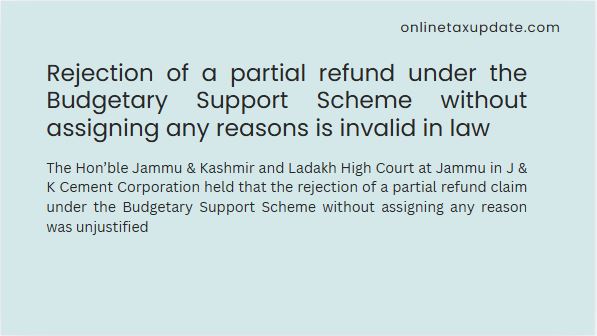Whether the transporter is required to carry original tax invoice during the transportation of goods?
No, the Honorable Karnataka High Court in the case of Kolvekar Logistics v. Joint Commissioner of Commercial taxes (Appeals), Hubbali [Writ Petition No. 100347 of 2022 dated April 22, 2024], quashed the orders and held that in the light of the Rule 138-A of the State Goods and Services Tax Act and Section 68 of the Central Goods and Services Tax Act and Rule 48 of the Central Goods and Services Rules, 2017 and as per Rule 48(1)(b) of the CGST, it is only the duplicate copy which is meant for transporter and the triplicate copy is meant for supplier as per clause (c). Therefore, held that the transporter is not required to carry the original tax invoice, but the law mandates him to carry the duplicate copy.
The Honorable Court noted that the Petitioner was penalized, and faced an additional tax demand because the original tax invoice was not carried by the transporter, only a xerox copy was presented. The Honorable Karnataka High Court relying upon the judgement of Divya Jyothi Petrochemicals Co. v. Joint Commissioner of Commercial Taxes (Appeals) [Writ Petition No. 100378 of 2022 dated February 28, 2024], wherein it was held that rule 48 of the CGST Rules, deals with the manner of issuing the Invoice. Accordingly, the Invoice shall be prepared in triplicate in case of supply of goods. The original copy marked as such is meant for the recipient or the purchaser and therefore, the same will not be carried by the transporter. As per rule 48(1)(b) of the CGST Act, it is only the duplicate copy is meant for the transporter and the triplicate copy is for the supplier as per clause (c) of rule 48(1) of the CGST Act.
The Honorable Court held that the transporter is not required to carry the original tax invoice, but as per rule 48(1)(b) of the CGST Act, transporters are mandatorily required to carry the duplicate copy. Thus, the court quashed the Impugned Orders and directed the Respondent to refund the tax, and the penalty amounts paid by the Petitioner within three months.
Author’s Comment
“Due Process” of law demands, the exercise of specific powers conferred to the Proper officer within specific boundaries of the law. Passion to protect the interest of revenue does not authorize by-passing of the law. The Revenue Department has to understand that this kind of approach renders the “due process” laid down in the statute “Superfluous, unnecessary and nugatory”, which is impermissible in the law. Intercepting officers fueled by their past experiences are lured into passing such perverse orders. But, First Appellate authorities are expected to bear the ‘Creatures of Statute’ effect and justify their Quasi judicial role to overcome trust deficiencies with the taxpayers and to quash such orders of over passionate adjudicating authorities.
Share this content:




Post Comment